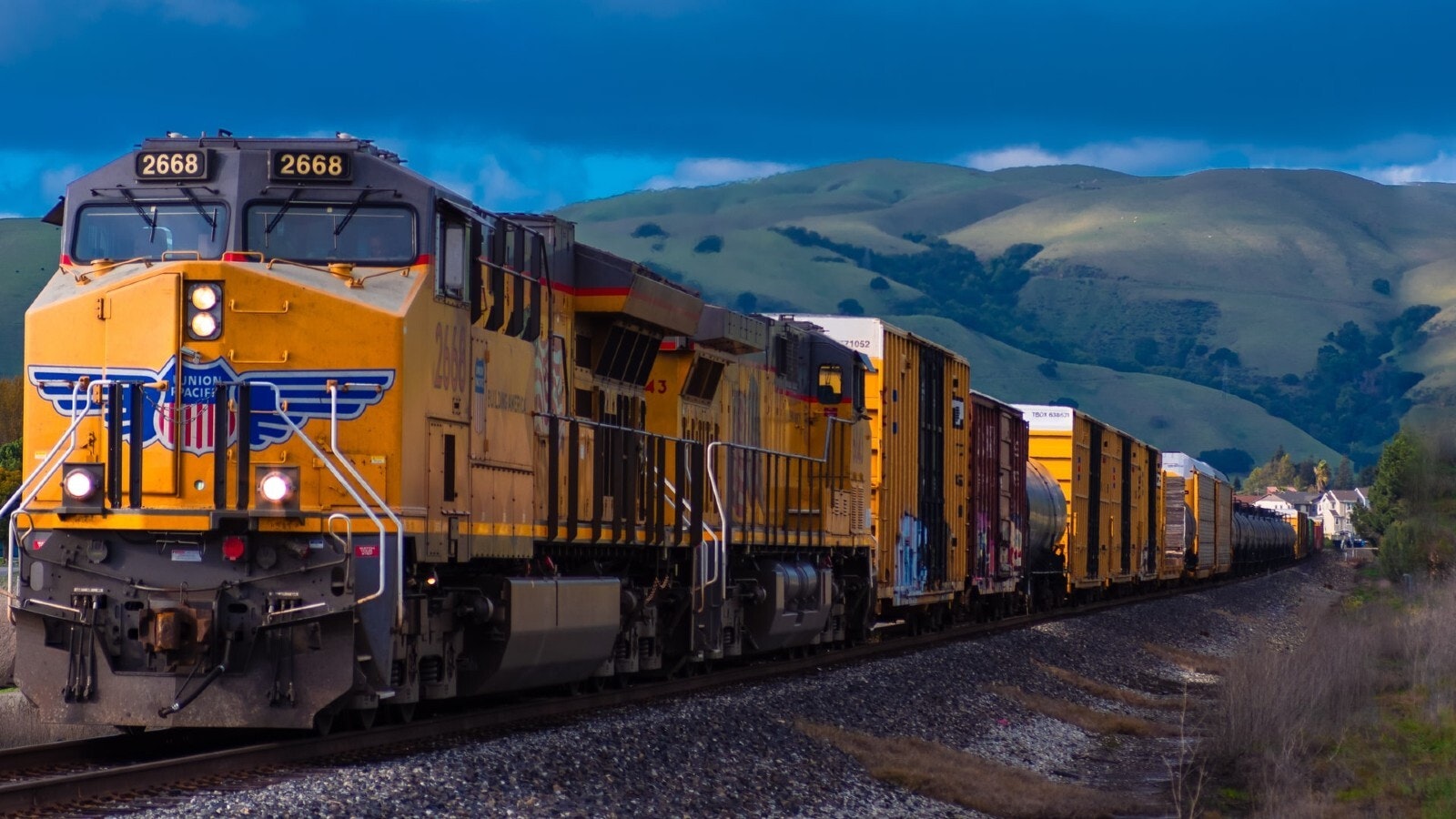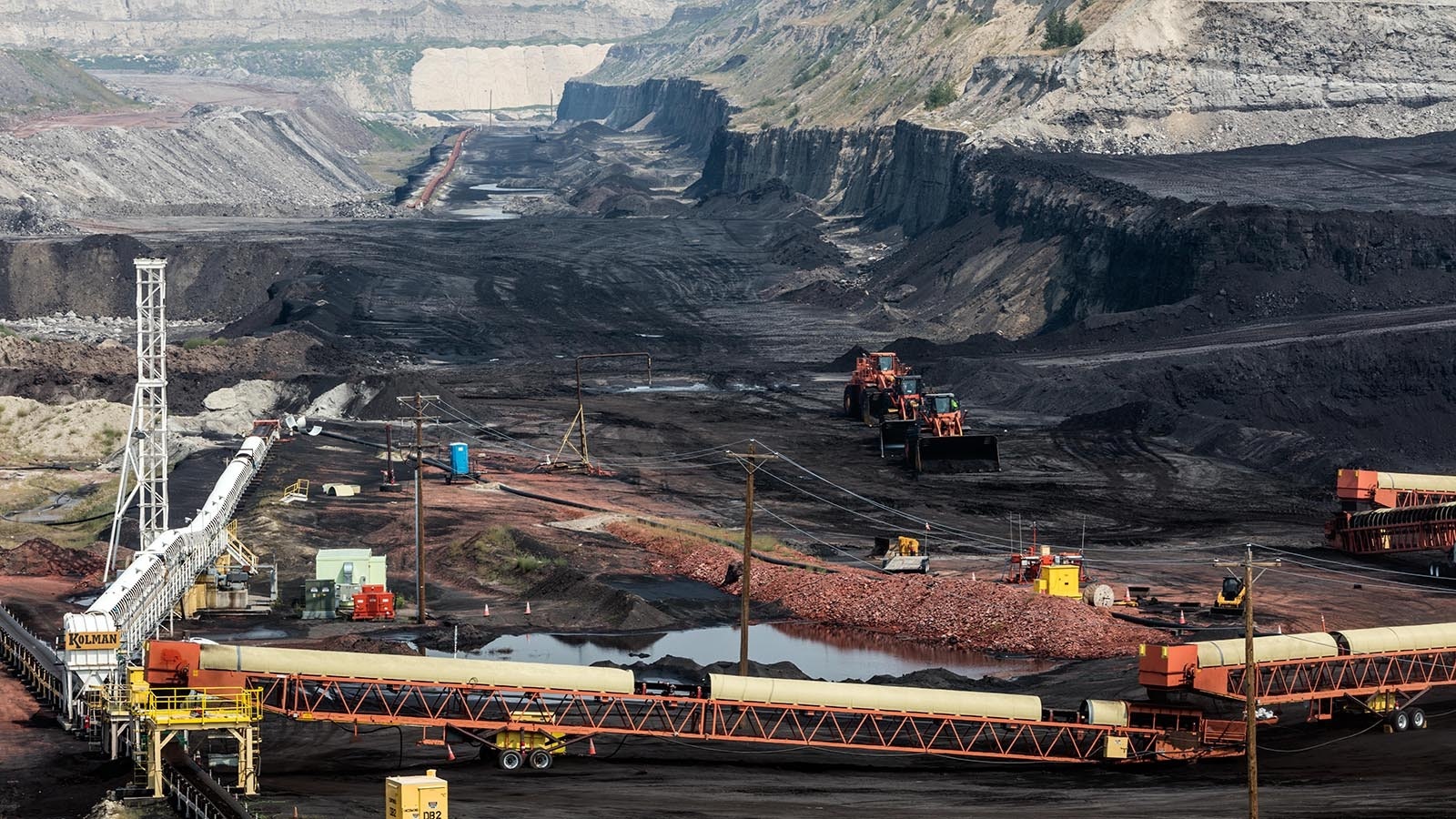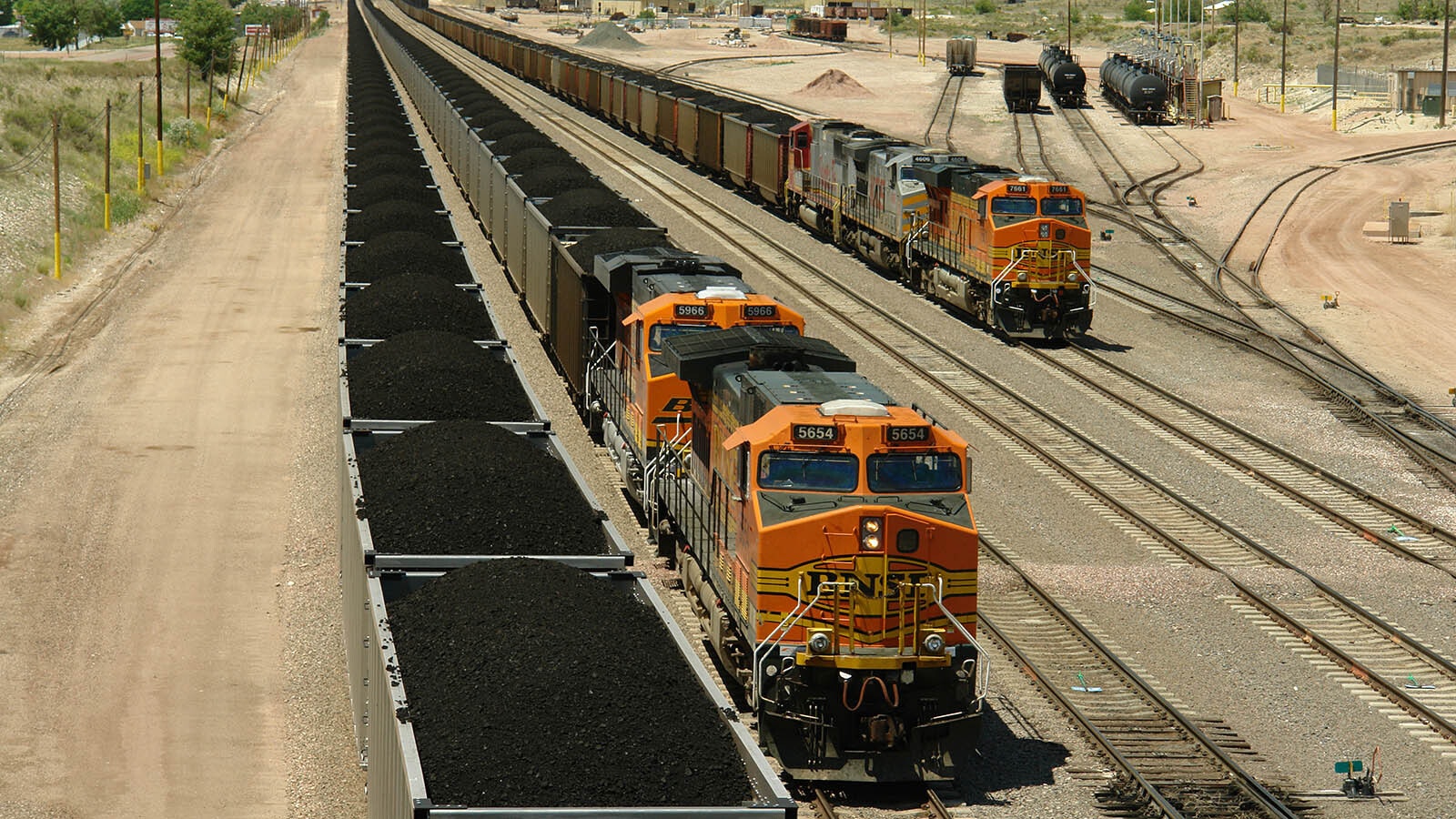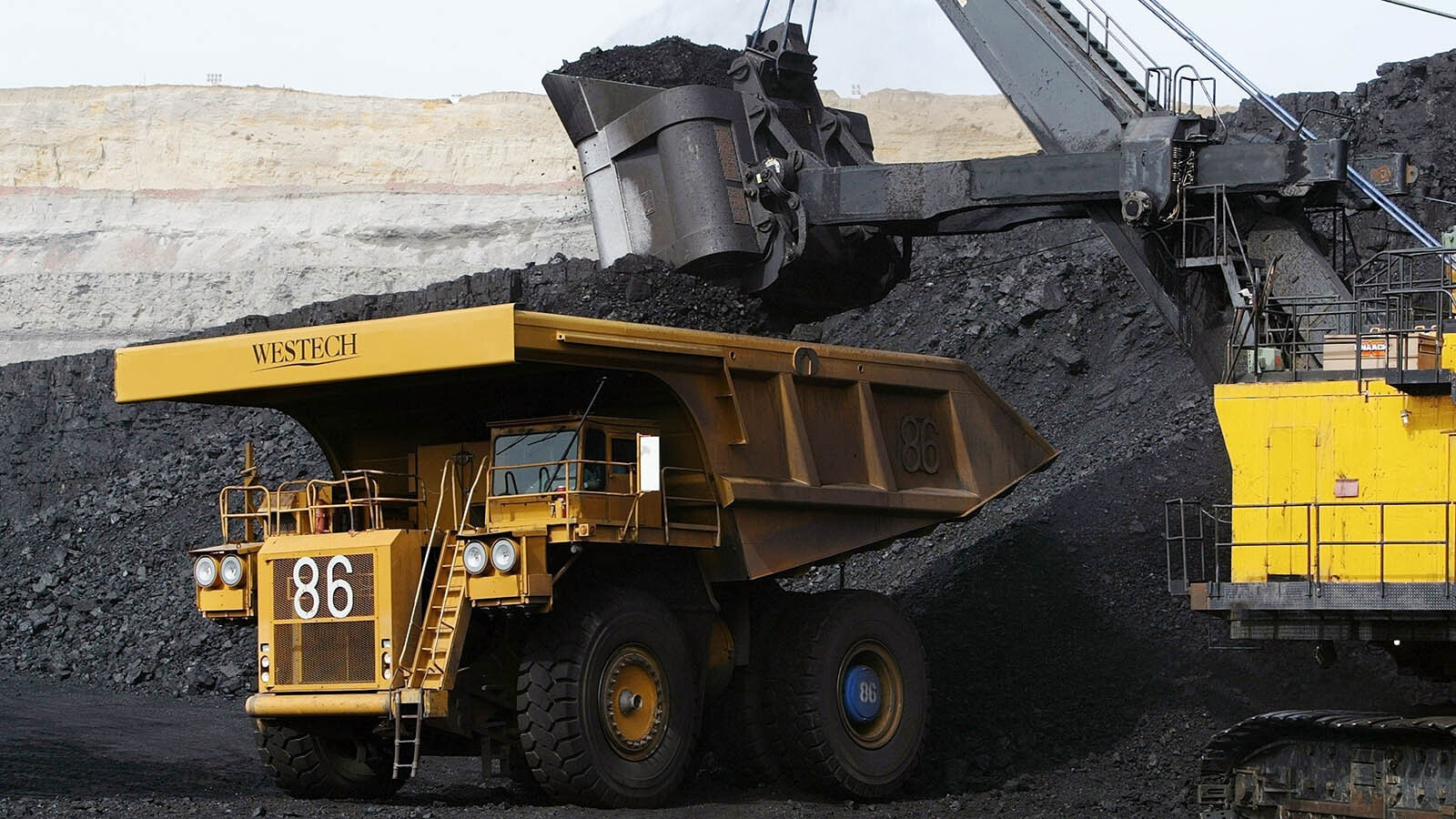Wyoming’s coal mines had a good year in 2022, but they could have produced about 20% more coal if more rail cars would have been available to ship it to power plants.
Current and retired engineers with Union Pacific and Burlington Northern Santa Fe Railway (BNSF) told Cowboy State Daily that the companies treat their employees so poorly that few people want to work for them. Many others are quitting.
One current engineer said she was disciplined when she took time off to deal with the suicide of a family member.
Representatives of Union Pacific and BNSF told Cowboy State Daily that they are working to improve working conditions for employees, hire more people and increase the availability of locomotives for the mines.
Lost Production
Travis Deti, executive director of the Wyoming Mining Association, said during a presentation to the Senate Minerals Committee last week that Wyoming coal mines could have produced about 50 million more tons of coal last year, which would have added $100 million to the state’s revenues for schools and other government services, if the mines had rail capacity to ship the coal to customers.
Deti said Union Pacific and BNSF, the two rail companies that ship Wyoming coal from the mines, are telling mining companies that the issue is a labor shortage, which also is what was communicated to Gov. Mark Gordon when his office looked into the issue.
Tammy Johnson, executive secretary with the Wyoming AFL-CIO labor union, told Cowboy State Daily that the reason the companies don’t have enough workers is because of how they treat their workers.
“They want to tell you this is a labor issue,” Johnson said. “It’s a management issue.”
Miss Everything
Stan Blake, a former Wyoming representative who worked for Union Pacific Railroad for more than 30 years before he retired, told Cowboy State Daily that the companies’ demands on employees deter many people from taking positions.
Railroad conductors and engineers work 12-hour shifts. Federal regulations require a 10-hour rest period after that shift in which workers can’t be called, but then they are often called right back to work after 10 hours.
They aren’t given any scheduled days off and getting time off is very difficult. Blake said this degrades the quality of life for the companies’ employees.
“You miss everything. You miss graduations, weddings. And if you don’t want to miss those, then you lay off sick,” Blake said, which can result in disciplinary actions.
In lieu of federal holidays, railroad employees are given 11 personal days per year, which is what they have to use for sick days.
A group of current engineers with the two railroad companies spoke to Cowboy State Daily on Tuesday on the condition that their names not be used. They said they have to schedule those personal days off months in advance.
Otherwise, they have to “lay off sick,” which adds points to an attendance policy. When the points get high enough, they are disciplined up to and including termination.
“We’re making good money, but we don’t get to sleep,” one engineer said.
Generational Job
The engineers said working for the railroads used to be a great career. Someone with a high school diploma could make great money.
It was always a demanding job with little time off, but over time, the demands the companies place on their workers have deteriorated to the point that that morale has crumbled.
“This used to be a generational job,” said one current engineer. “At one point, we had a grandfather, three sons and a grandson working at my terminal. The grandfather is now long retired.
“None of the sons work there, and the grandson quit during COVID.”
A current engineer said when her son’s dad killed himself, she was disciplined when she took time off to “deal with the clean up” and take her son to pick out an urn.
“I got in trouble for low hours,” she said.
Tight Schedule
Ken Esquibel, a Cheyenne City Council member and former Wyoming state representative, worked as an engineer for Union Pacific for more than 30 years. He retired last April.
Esquibel said those personal days were supposed to be available for whenever an employee needs time off.
“But when you would call in to take a personal leave day, you’d get a recording that says manpower in your area has exceeded the threshold,” Esquibel said.
The current engineers said they have heard the same message when they’ve tried to use their personal days. One said the last time he looked at the schedule, it would be four months before he could use a personal day.
Another said that half of new recruits don’t get through the training process, and many quit within the first month of work.
No Strike
The rail worker unions were threatening to strike last year, largely over demands for better time-off policies. But fearing the economic impacts a strike would have on the country, Congress intervened to implement a new contract for the 12 unions.
The new contract approved by Congress includes a 24% pay increase over five years from 2020 through 2024, an extra paid day off and $5,000 in performance bonuses, with total average annual pay and benefits reaching $160,000 by the end of the contract period.
It was far less than many of the workers wanted.
“We’re so important to the economy that we can’t strike. But on the other hand, we’re not important enough to treat us as human beings,” one engineer said.
BNSF Responds
Lena Kent, general director of public affairs for BNSF, told Cowboy State Daily that, with an increase in personal leave days this year, the average railroad employee receives 25-29 days of paid time off per year.
“Our people remain our greatest strength, and we could not do what we do without the hardworking, dedicated men and women of BNSF,” Kent said.
The company also is implementing systems to restore and increase rail capacity, Kent said, as well as reduce congestion. The company added 425 locomotives to its active fleet and improved repair times.
“BNSF takes pride in delivering safe, efficient, consistent and reliable service,” Kent said.
Kent said that the Arctic blast in December that sent temperatures across Wyoming plunging into negative double digits in a matter of hours greatly disrupted rail service.
“The bitter cold, including minus 29 degrees in Gillette, significantly impacted operations. We’re taking aggressive steps to recover, and we’re seeing significant improvement,” Kent said.
She also said the company is facing the same hiring challenges as many industries in this “unprecedented labor market,” but despite that, BNSF achieved over 90% of its goal to hire 3,000 additional employees.
This includes 1,800 train crew personnel and 1,200 new employees on the engineering, mechanical and dispatcher teams.
Union Pacific Responds
Robynn Tysver, a spokesperson for Union Pacific, said the company is working with the unions to address the employee’s quality of life concerns, while providing service to their customers.
“Despite the challenges of a tight labor market, we are making significant strides recruiting, training and developing a strong work force,” Tysver said. “We currently have around 600 employees in training in our pipeline and our hiring efforts will continue in 2023.”





